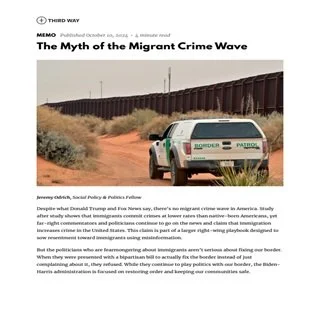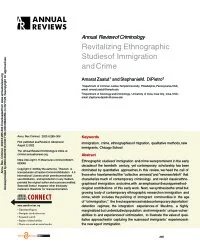Far-right politicians and their allies are making two dishonest claims about the connection between immigration and crime. First, they’re claiming there is currently a wave of violent crime in the United States. This is false. In fiscal year (FY) 2023, violent crime fell near its lowest rate in 50 years. Second, they are claiming that undocumented immigrants are the cause of this violent crime wave. This too is false and easily debunked by the data.
Research by the American Immigration Council looked at FBI data over a 23-year period and found that immigrants are less likely to commit violent crimes than native-born Americans. Not only are immigrants less likely to commit violent crimes, but higher rates of immigration are associated with decreases in both violent and property crime in communities. Put differently, where there are more immigrants, there is less crime.
In FY 2023, a record 2.3 million immigrants were encountered at our southern border. If right-wing accusations were correct, we would expect that with record levels of immigration, we would also see record levels of violent crime, especially in border states. Yet in 2023, Texas saw a 15% drop in violent crime and Arizona saw an 8.8% drop. In a year with more migrants arriving than ever before, border states are reporting precipitous drops in crime rates.
Another study using arrest data from the Texas Department of Public Safety, an agency headed by a Republican appointee, compared the criminality of undocumented migrants, legal migrants, and native-born Americans between 2012 and 2018. Of the three groups, undocumented migrants had the lowest rates of committing crimes. This finding entirely refutes the right-wing argument that migrants are the source of a crime wave in American communities.
Washington, DC: Third Way, 2025. 4p.




